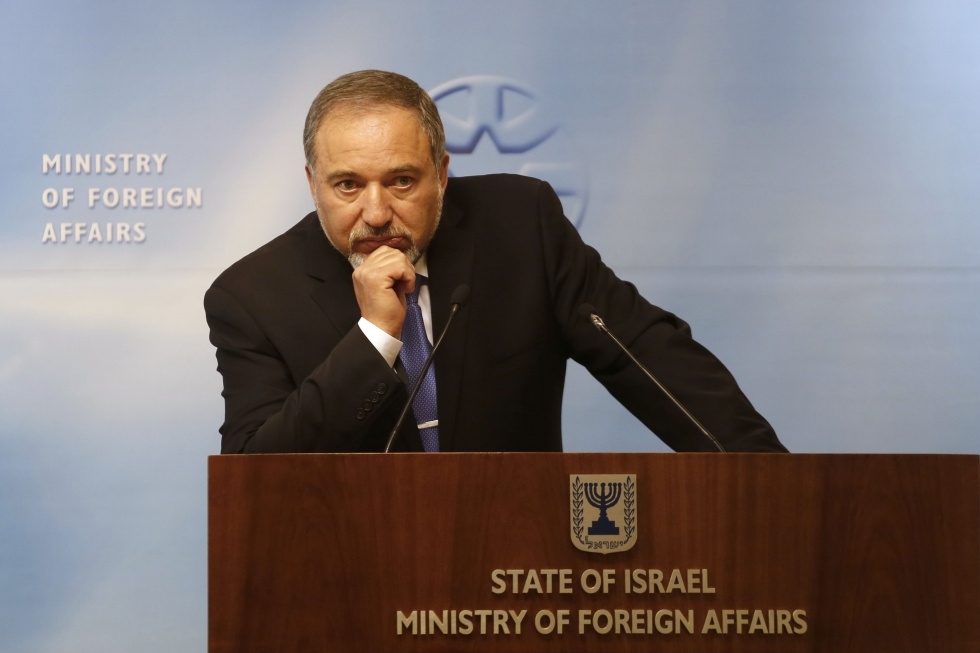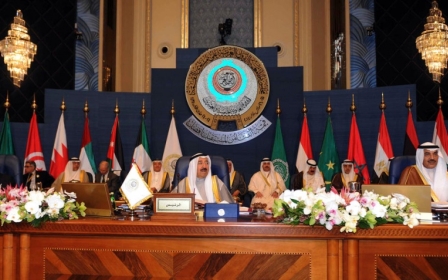Lieberman slams Israeli disunity over peace process

Israeli Foreign Minister Avigdor Lieberman has accused the Israeli government of a lack of unity over the question of Palestine, saying the situation has created a “grotesque spectacle”.
His comments came after a security conference on Sunday at which numerous senior Israeli ministers outlined contradictory views on how to proceed on the issue of peace talks.
"Four senior ministers, appearing one after the other and each taking a totally different diplomatic direction, created a grotesque spectacle," he said, referring to a series of presentations given by senior ministers at the Herzliya security meet.
Israel has withdrawn from US-led negotiations following the creation of a Palestinian unity government featuring Hamas, which Israel deems a terrorist organisation.
"This cannot be how a government's policy is represented," Lieberman told a conference in the southern city of Eilat, in remarks relayed by his spokesman. "We must decide and define one diplomatic programme, which would bind all parts of the government."
During the conference, Justice Minister Tzipi Livni, from the centre-left Hatnuah party advocated re-opening peace talks with the Palestinians, in spite of the Hamas presence.
Conversely, Housing minister Naftali Bennett, from the far-right Jewish Home party, advocated the annexation of the parts of the West Bank under Israel’s control.
Lieberman said that a unified approach towards Palestine must take into account the interests of the neighbouring states.
"In the Middle East everyone is afraid of everyone, therefore everyone must be brought to the negotiating table at the same time and do it all in parallel.
"The moderate Arab states are currently dealing with the same threats we are - Iran, Syria, al-Qaeda and extremist Islam, and if they want to survive, they must cooperate with us openly," he said.
Finance Minister Yair Lapid, from the centrist Yesh Atid party, has said his party will leave the governing coalition in Israel if Bennett’s proposal to annex parts of the West Bank were followed through.
"If we say yes, we'll cease being a Jewish state. If we say no, we'll cease being a democratic state. Both options are destructive for Israel," he said.
"It is time Israel decided where its borders are."
Lieberman dismissed both Lapid and Bennett as out of touch with reality.
“The economy minister spoke of annexing settlement blocks and the finance minister threatened to disband the coalition if such a plan is approved. They both know they are talking about something that will never happen,” he said.
“The idea of annexation is not feasible,” Lieberman emphasized, “Even Minister Bennett knows that, but he thinks it is worth saying to maybe get two more seats (in the Knesset).”
Lieberman also criticized Livni’s remarks at the conference. “The justice minister speaks of continuing the Oslo Process, 21 years after it was started and failed. It reminds me of Hegel’s observation that ‘governments have never learned anything from history,’” he said.
He also criticised Interior Minister Gideon Saar, from the right-wing Likud party, for advocating the “status quo”.
“The interior minister spoke of continuing the status quo and it simply does not work.” he said.
“It’s like in soccer, if you do not initiate and are always defending, you eventually concede a goal.”
New MEE newsletter: Jerusalem Dispatch
Sign up to get the latest insights and analysis on Israel-Palestine, alongside Turkey Unpacked and other MEE newsletters
Middle East Eye delivers independent and unrivalled coverage and analysis of the Middle East, North Africa and beyond. To learn more about republishing this content and the associated fees, please fill out this form. More about MEE can be found here.




